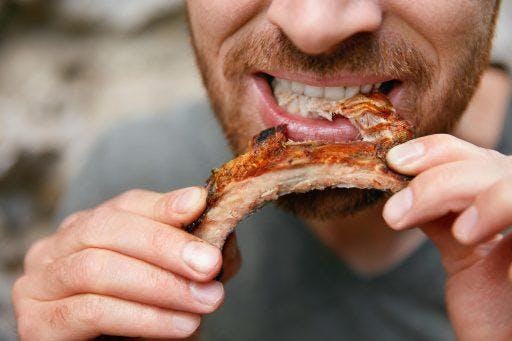Healthy diet trends are a dime a dozen. Some focus on calorie-deficit plans, while others are more nutrient-dense. But what makes one type better than the rest? The ideal balanced diet focuses on quality over quantity and offers multiple benefits for the body, not just the waistline. The food you eat is the building block for your wellness – including your oral health.
Brushing and flossing are the bare minimum when it comes to dental care. Did you know that specific food also improves the quality of your smile? If you’re going to be picky about eating, be fastidious about ingredients and dishes that do your teeth and mouth a favour.
The Link Between Healthy Diet and Oral Health

The human body metabolises food into micronutrients that support organ development. Your oral cavity is no exception. Malnutrition can cause a pH imbalance in the mouth, leading to issues like cold sores and gum disease. Even during pregnancy, the foetus’ dental structure formation relies on the mother’s diet. A study titled “Good Oral Health and Diet” reveals the lack of proteins, lipids, and carbohydrates can start the onset of caries, dental erosion, periodontal disease, and even tooth malformation.
Contrary to popular belief, genetics – or even your wisdom tooth – is not the sole factor to blame for crooked or crowded teeth. Poor nutrition is also a precursor of these orthodontic problems. The International Journal of Environmental Research and Public Health saw a link that people with a low height-to-age ratio from a poor diet are more likely to have overcrowded teeth.
The good news? You can reverse malocclusion with orthodontic treatments, such as braces and clear aligners. While wearing braces can make enjoying food difficult, clear aligners like ClearCorrect let you eat without pain. The latter is removable, allowing you to eat with gusto, so long as you keep them on for 20 to 22 hours daily. Invisible aligners apply gentle and consistent pressure to straighten your teeth. ClearCorrect, specifically, features a ClearQuartz material that is stain-resistant and stronger than other aligners in the market.
Types of Food Good for Teeth
Dental misalignment aside, certain types of food can turn your oral microflora sour. Harmful bacteria break down any residual food particles and turn them into acids, but they especially thrive when you eat sugar. The more sugar you eat, the more waste is left in the mouth. These acidic by-products drill holes into your teeth, causing cavities and tooth decay. Who can enjoy eating with those problems lingering in your mouth?
Now that you know sugar is bad, what foods are good for your teeth? Fortunately, the ideal nourishment for oral health also enhances your overall health. Plus, they’re delicious! Eat your way to perfect teeth by reaching more for these food ingredients.
1. Yogurt
Tasty, high in calcium, and good for gut health — are there reasons to dislike yogurt? This staple breakfast item neutralises acids in your mouth and restores minerals in your teeth. The Oral Health & Preventive Dentistry Journal reports yogurt effectively protects tooth enamel from corrosion. Be sure to grab a sugar-free yogurt on your next grocery run!
2. Cheese

Another dairy item on the list, cheese is a delightful snack because of its mouthwatering taste. Literally. Chewing cheese induces more saliva to wash away food particles and maintains a balanced oral pH level. It also has calcium and casein. Both strengthen the enamel and ward off bacteria from sticking to the teeth.
3. Crunchy vegetables and greens
Carrots, snap peas, cauliflower, celery, and bell peppers are nature’s dental floss. The rough texture of fibrous veggies helps clean plaque and unclogs food traps. On top of that, these crops contain A, B, and C vitamins to promote healthy gums and calcium to support your teeth. If you’re not a fan of salads, make a hearty veggie stew or dip some carrot sticks in hummus to keep your teeth and gums in tip-top shape. Check the mirror after for any stuck broccoli in your smile.
4. Nuts and legumes
Swap out crisps with pecans, almonds, or other nuts. These crunchy snacks are high in protein and calcium but low in carbs (sugar molecules). And as you know, calcium prevents tooth loss in adults and is vital in developing children’s permanent teeth. Plant-based milk made of soy, pea, and cashew can also be a good source of calcium for those with lactose intolerance.
5. Lean proteins

Chicken, beef, and fish build muscle mass and strengthen teeth. Aside from protein, these foods contain phosphorus that protects and rebuilds the outer layer of teeth. Moreover, your body can’t absorb calcium without phosphorus, so be sure to eat meat with a healthy serving of salad and cheese (yum!).
Types of Food to Limit for Healthy Teeth
Sugar-laden desserts and beverages (looking at you, bubble tea) are not the only enemies of oral health. You’d be surprised by the amount of hidden sugar in many foods and the dangers of highly acidic foods on teeth. Cut down on these food items from your weekly menu.
1. Flavoured milk

Milk is a double-edged sword when it comes to teeth health. Yes, it’s the most well-known source of calcium and can protect the enamel if consumed after a meal. However, milk from cows and goats is high in lactose, a type of sugar that can cause cavities.
When you sleep after drinking milk and without brushing your teeth, the bacteria turn lactose into acids that dissolve the enamel. The World Health Organisation (WHO) also links sugary beverages like soda and sweetened milk to the increasing case of dental caries in children. So, make sure to drink plain milk only!
2. Citrus items
The sourness of orange juice in the morning might wake you, but it wears your teeth down. The acidity of citrus fruits, like lemons, grapefruits, and oranges, strips away the protective tissue of your teeth little by little. If you sip infused water or detox drink made with these fruits throughout the day, your teeth won’t get to remineralise.
There’s a reason an apple a day keeps the doctors, not dentists, away. The Journal of Dentistry finds daily consumption of citrus can put a crack in enamel and expose dentine, causing tooth sensitivity.
3. Dried fruits
Trading candies for dried fruits seems the wisest choice when craving something sweet since the latter still contains nutrients and fibres. However, dehydration concentrates the sugar and calorie contents in the fruits. Most dried fruits also have a syrup coating. The sticky texture of these snacks makes it easier to lodge in the nooks and crannies of your teeth, which exposes the enamel to more sugar over time.
4. Kombucha

Sometimes your gut and teeth don’t agree with each other, especially when kombucha is involved. This drink is made by fermenting tea with sugar and yeast, producing a very low pH concoction to prevent bacterial growth. The amount of sugar put into kombucha also doubles the damage to teeth. While kombucha aids with constipation and other digestive issues, it can stain and corrode teeth. You can skip this beverage altogether or swish water around your mouth after drinking it.
5. Bread and pasta
Don’t be tempted by the complimentary bread rolls at Italian restaurants. When you eat carb-heavy dishes like pizza, spaghetti, and sandwiches, saliva breaks down the starches into – surprise! – sugar. Some types of bread are also very tough to bite into, which can chip your tooth. The next time you order a pasta dish, skip the garlic bread appetiser occasionally.
A healthy diet doesn’t mean depriving yourself. Eat in moderation, and don’t forget to brush your teeth properly afterwards!
References:
Scardina, G. A., & Messina, P. (2012). Good Oral Health and Diet. Journal of Biomedicine and Biotechnology, 2012, 1–8. https://doi.org/10.1155/2012/720692
Thomaz, E. B. a. F., Cangussu, M. C. T., Da Silva, A. a. M., & De Oliveira Assis, A. M. (2010). Is Malnutrition Associated with Crowding in Permanent Dentition? International Journal of Environmental Research and Public Health, 7(9), 3531–3544. https://doi.org/10.3390/ijerph7093531
Varghese, L., Varughese, J. M., & Varghese, N. O. (2013b). Inhibitory effect of yogurt extract on dental enamel demineralisation – an in vitro study. Oral Health & Preventive Dentistry, 11(4), 369. https://doi.org/10.3290/j.ohpd.a30604
World Health Organization: WHO. (2017, November 9). Sugars and dental caries. https://www.who.int/news-room/fact-sheets/detail/sugars-and-dental-caries
Bartlett, D. L., Fares, J., Shirodaria, S., Chiu, K., Ahmad, N., & Sherriff, M. (2011). The association of tooth wear, diet and dietary habits in adults aged 18–30 years old. Journal of Dentistry, 39(12), 811–816. https://doi.org/10.1016/j.jdent.2011.08.014



